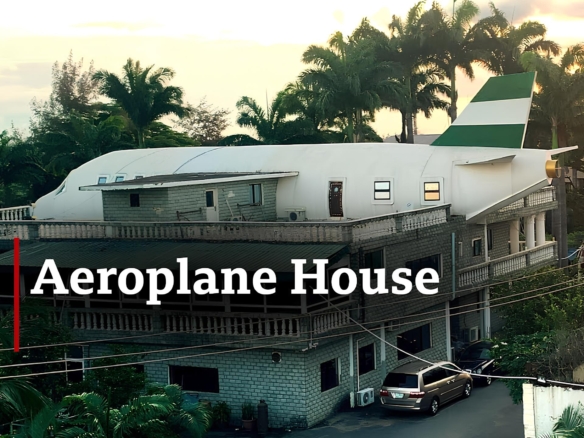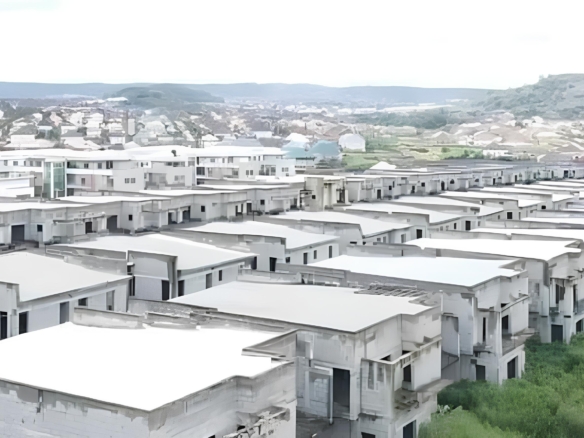Analyzing Property Value Trends Across Major Nigerian Cities
Welcome to Unlockahouse, your go-to blog for all things real estate in Nigeria. Today, we’re diving into an exciting topic: the trends in property values across major Nigerian cities. Whether you’re a prospective homeowner, an investor, or just curious about the real estate landscape, understanding these trends can provide valuable insights.
The Nigerian Real Estate Landscape
Nigeria, Africa’s most populous country, boasts a diverse and dynamic real estate market. From the bustling commercial hub of Lagos to the serene, administrative capital of Abuja, each city has its unique characteristics influencing property values. Let’s take a closer look at the property value trends in some of Nigeria’s major cities.
1. Lagos
The Economic Powerhouse
Lagos is often regarded as the economic powerhouse of Nigeria. With its sprawling business districts, vibrant culture, and extensive coastline, it’s no surprise that Lagos remains a top choice for real estate investments.
Property Value Trends
Over the past decade, Lagos has seen a steady increase in property values. Key areas such as Victoria Island, Ikoyi, and Lekki have witnessed significant appreciation due to their prime locations and upscale amenities. However, the rapid urbanization and population growth have also led to higher demand for affordable housing in suburbs like Ajah and Yaba, driving up prices in these areas.
Factors Influencing Trends
- Economic Opportunities: The concentration of businesses and employment opportunities in Lagos continues to attract a growing population, increasing demand for both residential and commercial properties.
- Infrastructure Development: Ongoing infrastructure projects, including the Lekki Free Trade Zone and the proposed Fourth Mainland Bridge, have further boosted property values.
2. Abuja
The Administrative Capital
Abuja, as the seat of government, is known for its well-planned layout and serene environment. The city offers a contrast to the hustle and bustle of Lagos, with a more relaxed pace of life.
Property Value Trends
Abuja’s property market has experienced steady growth, particularly in areas like Maitama, Asokoro, and Wuse. These districts are highly sought after by government officials, expatriates, and high-net-worth individuals, keeping property values high.
Factors Influencing Trends
- Government Presence: The concentration of government offices and international organizations in Abuja drives demand for high-end residential and commercial properties.
- Urban Planning: Abuja’s master plan ensures controlled development, maintaining the city’s appeal and contributing to stable property values.
3. Port Harcourt
The Oil City: Port Harcourt
Overview: Port Harcourt, the capital of Rivers State, is an essential hub for Nigeria’s oil and gas industry. This thriving sector greatly affects various aspects of the city’s real estate market, driving demand and shaping property values. Here’s a closer look at this dynamic relationship:
– Economic Influence:
- Employment Opportunities: The presence of numerous multinational oil companies and their ancillary services creates a substantial number of high-paying jobs, attracting professionals and expatriates to the city.
- Increased Income Levels: Higher income levels among those employed in the oil and gas sector elevate purchasing power, leading to increased demand for both residential and commercial properties.
– Residential Real Estate:
- Luxury Housing Demand: The influx of expatriates and high-earning professionals boosts demand for luxury accommodations. High-end residential areas such as Old GRA, New GRA, and Trans-Amadi feature upscale housing options including furnished apartments, villas, and gated communities.
- Urban Development: Ongoing urban development projects to accommodate the growing population are common. The development of modern infrastructure, including roads and utilities, further enhances the desirability of residential areas.
– Commercial Real Estate:
- Office Spaces: With many oil companies establishing their headquarters and operational bases in Port Harcourt, there is a significant demand for modern office spaces. Commercial districts like Trans-Amadi and D-line are bustling with office buildings and business parks.
- Retail and Hospitality Sectors: The thriving oil industry attracts business travelers and tourists, spurring growth in the hospitality and retail sectors. This leads to the construction of hotels, shopping malls, and entertainment centers.
– Infrastructure Development:
- Transport and Connectivity: The need to support the oil and gas operations results in better transportation infrastructure, including upgraded roads, bridges, and port facilities. Improved connectivity enhances real estate values by making areas more accessible.
- Utilities and Services: Investments in utilities such as electricity, water supply, and telecommunications are essential to support the industry’s operations and, by extension, improve living standards for residents.
– Land and Property Values:
- Appreciation Rates: The robust demand driven by the oil sector leads to steady appreciation in land and property values. Investors view Port Harcourt as a lucrative market, expecting significant returns on real estate investments.
- Competitive Market: High demand results in a competitive market environment, often leading to increased property prices and rental rates, especially in prime locations.
– Challenges and Considerations:
- Environmental Concerns: The oil industry’s impact on the environment, including pollution and land degradation, can affect certain areas. Buyers and investors need to consider environmental factors when making decisions.
- Market Volatility: The real estate market can be susceptible to fluctuations in the global oil market. Economic downturns or instability in oil prices may influence real estate demand and pricing.
Property Value Trends
The property market in Port Harcourt has seen fluctuating trends, largely tied to the fortunes of the oil industry. Areas like GRA Phase II and III remain highly desirable, with consistent demand for residential properties among expatriates and oil company employees.
Factors Influencing Trends
- Oil Industry Dynamics: The performance of the oil sector directly impacts real estate demand, with property values often rising and falling in tandem with oil prices.
- Security Concerns: Periodic security challenges have affected property values, particularly in less secure neighborhoods.
4. Kano
The Commercial Hub of the North
Kano, one of the oldest cities in West Africa, serves as a commercial and industrial hub in northern Nigeria. Its rich history and strategic location make it a key player in the real estate market.
Property Value Trends
Kano’s real estate market has shown resilience, with moderate but steady growth. Commercial properties, particularly around the Kano Central Business District, have seen appreciable value increases, while residential areas like Nassarawa and Farm Centre maintain stable demand.
Factors Influencing Trends
- Commercial Activities: Kano’s role as a trading and manufacturing center sustains demand for both commercial and residential properties.
- Cultural Heritage: The city’s cultural and historical significance adds to its real estate appeal, attracting both local and international investors.
Emerging Trends in Nigerian Real Estate
1. Rise of Smart and Sustainable Homes
There is a growing trend towards smart and sustainable homes in major Nigerian cities. Developers are increasingly incorporating eco-friendly designs and smart technologies to attract environmentally conscious buyers.
2. Increased Foreign Investment
Foreign investors are taking a keen interest in Nigeria’s real estate market, driven by the country’s economic potential and high returns on investment. This influx of foreign capital is expected to further boost property values, particularly in high-demand areas.
3. Development of Satellite Towns
As city centers become more congested, there is a noticeable shift towards the development of satellite towns and suburban areas. These regions offer more affordable housing options and are becoming increasingly popular among middle-income earners.
Conclusion
Understanding property value trends across major Nigerian cities is crucial for making informed real estate decisions. Each city offers unique opportunities and challenges, influenced by factors such as economic activities, infrastructure development, and cultural significance. By staying informed about these trends, you can better navigate the dynamic Nigerian real estate market.
Stay tuned to Unlockahouse for more insights, tips, and updates on the Nigerian real estate sector. Whether you’re buying, selling, or investing, we’re here to unlock the door to your real estate success.





